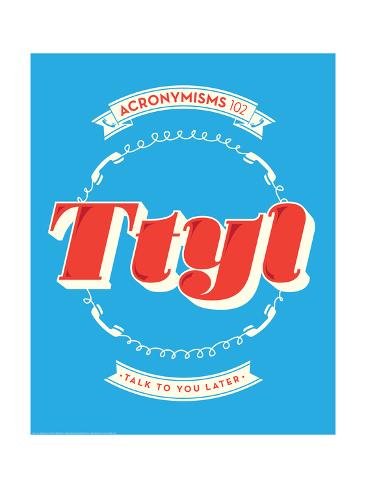

It is more positive than "Talk to you later" as it implies that I have to stop this conversation now (usually for a good reason) but we will pick it up again some other time in the near future. "Talk to you soon" usually implies that you know the person at least fairly well and that chances of a repeat conversation exist. There also might be or might not be some unfinished business to return to. There might be or might not be a set time when this would happen although it is a shorter time period than "Talk to you later" like a day or so. "Talk to you soon", can indicate that you hope or wish to speak with the other person sooner, rather than later. It is a very informal but definite form of goodbye. Thus it is less positive that you will talk again. Need to translate 'talk to you later' to French Heres how you say it. What does I’ll talk to you later really mean We text everyday, kinda throughout the day. It may imply the next time you meet or never.

But 'talk to you later' used to inform ones purposeful intention to call someone back that evening, is necessary information and therefore not redundant.

'See you later'/'talk to you later', if used to inform and supply some yet unknown intention, is not redundant. There might be or might not be some unfinished business to return to. But what is said out of habit and often repeated each time can be redundant. There might be or might not be a set time when this would happen and could mean later today, week or later this month etc. Saying I will talk to you later carries the implication that they will listen to you and allow you to have input in the. "Talk to you later" is open-ended as to when you will speak together again. They are both accepted forms of ending a conversation. Is there a difference between the expressions: "talk to you later" and "talk to you soon"? Can I use them anyway? For the first situation (lets talk about it later), people usually say 'Ill get back to you later'. Just over a week ago I answered the following question: Can be used for both cases, but I hear it more often used for saying goodbye.


 0 kommentar(er)
0 kommentar(er)
